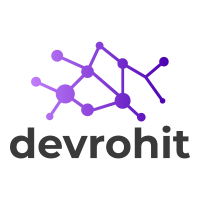Your cart is currently empty!
Know more about Laravel Framework
Laravel is an Open-source PHP framework and created by Taylor Otwell, which follows MVC architecture and is based on Symphony. It makes an effortless process for you to make professional web applications by following, refined coding standards and architectural patterns. Running a Test Driven Development in Laravel is fun and easy to implement. Laravel boasts of a micro-services architecture.
Taylor attempts to make an advanced alternative to the Codeigniter Framework. It does not provide such functionality as user authentication & Authorization. Laravel framework has an elegant syntax, which makes it easy for developers to create new applications.
Laravel is accessible, yet powerful, providing powerful tools needed for large, robust applications. make development, deployment, and maintenance flexible and pleasant. An elegant set of convenient and advanced built-in features.
List of Laravel Framework versions described:
- The Laravel 1 was released in June 2011 with built-in functionality like authentication, localization, views, models, routing, sessions, and other basic mechanisms. it is not a fully MVC framework due to not supported controller
- Laravel 2 was released in September 2011. This version added some new functionality like the controller, Inversion of Control principle, and templating system, and this version is a fully MVC-based Framework.
- The New Version of Laravel was released in February 2012. The Laravel 3 contains new features including a command-line interface(CLI), Database migration, support event handling, and packaging system. This version makes Laravel popular and increases the user-base
- Version 4 was made as a complete rewrite code for the Laravel framework and migrated its layout into a set of separate packages. Laravel has added to the New feature Database seeding to initially populate the data into the database, and Soft deletion was first-time introduced in this version.
- Laravel 5 introduced new features that are scheduling periodic execution. An abstract layer for storage that is remotely accessed, and a Socialite package that handles third-party authentication For example, Google Login
- Laravel 5.4 has contained many features like Laravel Dusk, Laravel Mix, Automatic Facades, improvement in routing, and Higher-Order messaging for Collections.
- Laravel 6 introduced semantic versioning, compatibility with Laravel Vapor, improved job of Middleware, lazy collections, and subquery improvements. The frontend scaffolding was removed from the Framework, and a new package was introduced, which is known as Laravel/UI.
- Laravel 7 introduced Laravel Sanctum, Custom Eloquent casts, Route binding improvement, and Fluent String Operations.
- Laravel 8 introduced a new package Laravel Jetstream, model factory classes, migration squashing, Tailwind CSS for pagination views, and other usability improvements.
Features of Laravel
- Class Autoloading
- IOC container
- Migration
- Query Builder
- Artisan Console
- Database Seeding
- Unit-Testing
- Application Logic
- Automatic Pagination
- Form Pagination
- Restful Controllers
- Reverse Routing
- The Eloquent ORM
- View Composers
- Form request
- Bundles


